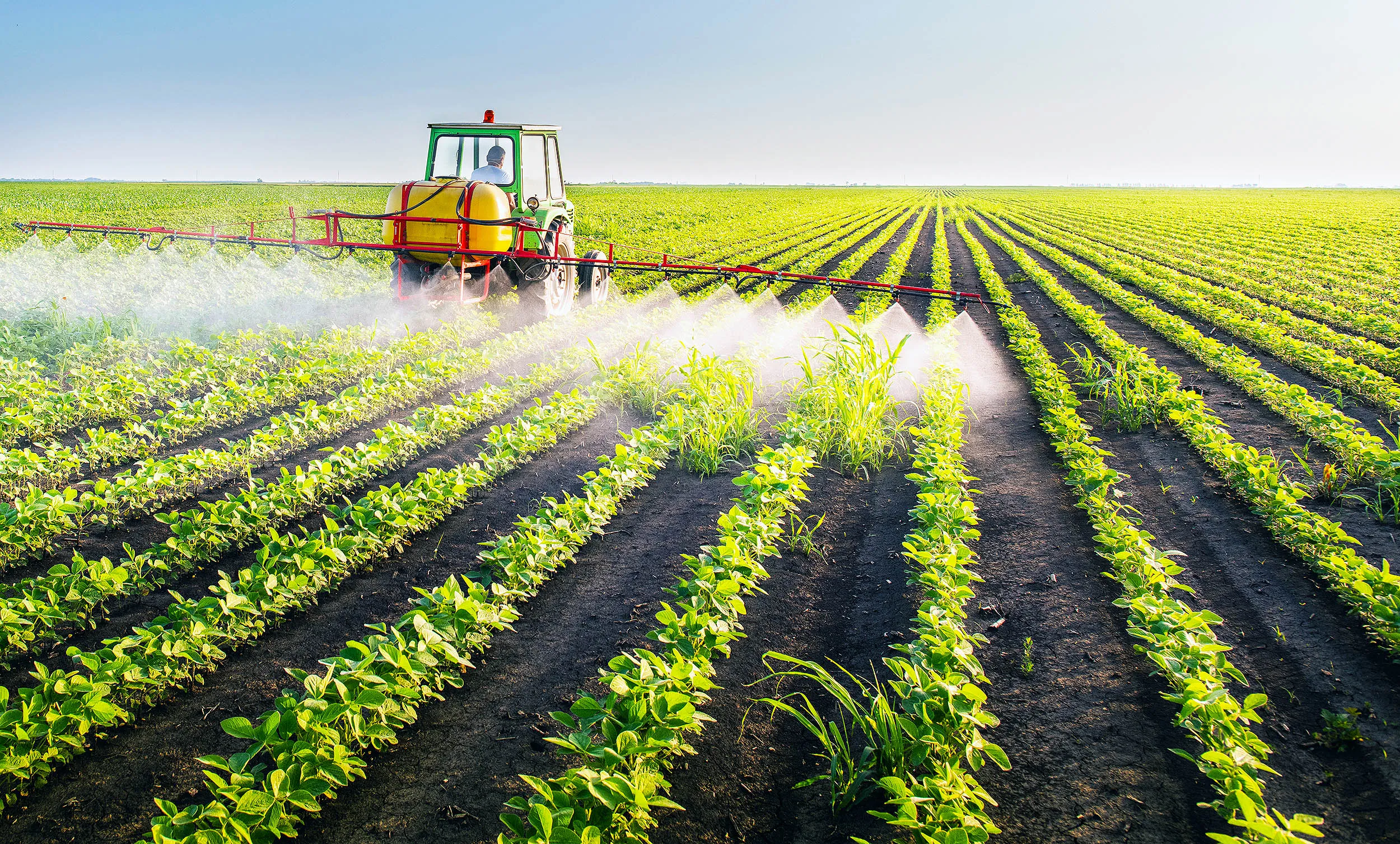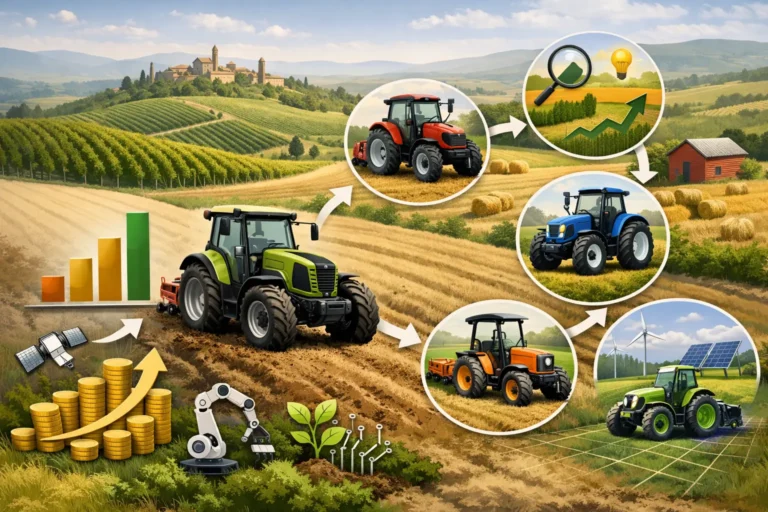
Farming Carbon Farmland LP and Carbon Friendly File First U.S. Regenerative Credits with Verra for Issuance
Farmland LP, the largest U.S. manager dedicated exclusively to organic and regenerative farmland, together with Carbon Friendly, a recognized leader in regenerative carbon project development, has achieved a landmark milestone by submitting the first-ever regenerative farming carbon credits produced in the United States to Verra for issuance. These credits are being submitted under Verra’s VM0042 methodology, a globally recognized framework for soil carbon quantification and verification.
This submission represents a significant step forward for regenerative agriculture, positioning it as a credible and scalable climate solution. Following site visits conducted in late 2024, a Verra-accredited third-party auditor spent nine months conducting a comprehensive review of the projects, ensuring that every aspect adhered to Verra’s Verified Carbon Standard methodology. The completed audit, which included rigorous field verification and documentation, was submitted to Verra in October for final approval and the official issuance of the carbon credits.
High-Integrity Carbon Credits Rooted in Science and Regeneration
The carbon credits emerging from this submission represent some of the highest integrity pathways currently available in the voluntary carbon market. Unlike many traditional credits, these are built on empirically measured data rather than modeled projections, providing investors and stakeholders with verifiable evidence of environmental impact.
Key attributes of these credits include:
- Uniquely Measured, Not Modeled: Soil carbon measurements are taken annually at precisely the same GPS points across farms, ensuring accurate and verifiable tracking of carbon stock changes over time. This approach removes uncertainties often associated with modeled projections and enhances the credibility of the credits.
- Permanent and Third-Party Verified: Legal agreements and Verra-approved safeguards underpin these projects, guaranteeing long-term permanence of carbon sequestration. Third-party verification adds an additional layer of accountability, assuring that the carbon reductions are both real and enduring.
- Regeneration in Action – Food, Water, and Biodiversity Benefits: Beyond carbon sequestration, these credits originate from certified organic and regenerative farmland. Projects under this initiative are actively improving soil health, enhancing water quality, and promoting biodiversity, demonstrating that climate solutions can simultaneously provide broad ecological co-benefits.
The initial batch of credits anticipated to be issued by Verra comes from investments in regenerative practices implemented during 2023 and 2024. Looking forward, Farmland LP, Carbon Friendly, and their farming partners project the issuance of 2 to 5 million regenerative soil carbon credits over the next decade from projects already validated. Additional credits are expected from new projects under development, illustrating a sustained commitment to scaling regenerative agriculture as a climate mitigation strategy.
Aligning Ecological and Financial Value
“Farmland LP’s strategy has always been to align ecological value with financial return,” said Craig Wichner, Managing Partner of Farmland LP. “With this first submission to Verra, we are turning regenerative agriculture into a verifiable climate solution that will generate millions of high-quality nature-based removals over the coming decade. This milestone demonstrates the potential for regenerative farming to deliver both ecological and economic value at scale.”
By linking verified carbon credits with the financial performance of regenerative farmland, Farmland LP is demonstrating a model in which sustainability and profitability reinforce one another. The initiative creates tangible incentives for farmers to adopt regenerative practices, transforming carbon sequestration from a theoretical environmental benefit into a measurable economic asset.
Scientific Credibility and Market Confidence
“Verra’s approval process demands the highest levels of rigor, and this submission proves that regenerative agriculture can meet that bar,” said François Visser, CEO of Carbon Friendly. “Partnering with Farmland LP allows us to bring scientific credibility and market transparency to soil carbon credits at scale, providing corporate buyers with the confidence they need to invest in durable, ‘Ground Truth’ climate solutions.”
This combination of empirical measurement, independent verification, and long-term project safeguards represents a new benchmark for the voluntary carbon market. Corporate buyers looking to offset emissions now have access to carbon credits that not only meet rigorous standards but also deliver measurable environmental and social co-benefits, including enhanced soil fertility, improved water retention, and greater biodiversity on working farmland.
Expanding Farmland LP’s Regenerative Portfolio
The carbon credit milestone comes amid continued growth for Farmland LP under its Fund III, which remains open to investors through December 2025. The company has been actively expanding its portfolio through strategic acquisitions and partnerships that enhance both its agricultural and environmental impact.
Among recent initiatives is a joint venture with Stemilt Growers covering nearly 1,000 acres of apples and cherries in Washington’s Columbia Basin. This partnership further diversifies Farmland LP’s holdings and strengthens its capacity to implement regenerative practices at scale. The company’s broader portfolio now exceeds 4,700 acres, including notable earlier acquisitions such as the 1,184-acre Riverwood Farm in Oregon’s Willamette Valley and 2,625 acres across three farms in California’s San Joaquin Delta.
Each of these properties contributes not only to agricultural productivity but also to carbon sequestration and ecosystem restoration, reinforcing Farmland LP’s integrated approach to farming, climate mitigation, and investment. By embedding regenerative practices across a diverse portfolio of crops and regions, Farmland LP is demonstrating that sustainable agriculture can deliver robust financial returns while actively addressing climate change.
A Model for the Future of Regenerative Agriculture
The submission of the first U.S.-based regenerative farming carbon credits to Verra is more than a milestone for Farmland LP and Carbon Friendly—it is a defining moment for the broader carbon market. It signals that regenerative agriculture can be both scientifically rigorous and financially viable, providing a template for other farmers, investors, and carbon project developers.
By combining empirical soil measurements, verified co-benefits, and legally binding safeguards, these projects establish a new standard of integrity in the voluntary carbon market. They illustrate that regenerative farming can deliver measurable environmental outcomes—improving soil health, water quality, and biodiversity—while generating high-quality carbon credits that attract global corporate investment.
Looking ahead, the collaboration between Farmland LP, Carbon Friendly, and their farming partners is expected to accelerate the adoption of regenerative practices across U.S. farmland, potentially generating millions of carbon credits over the next decade. This initiative underscores the transformative potential of regenerative agriculture as a tool for both climate mitigation and sustainable food production.
As the world seeks credible, science-based solutions to combat climate change, projects like these demonstrate that the path forward need not come at the expense of agricultural productivity or ecological health. With Farmland LP and Carbon Friendly leading the way, regenerative agriculture is moving from a niche concept to a mainstream climate solution, creating lasting benefits for farmers, investors, and the planet.





